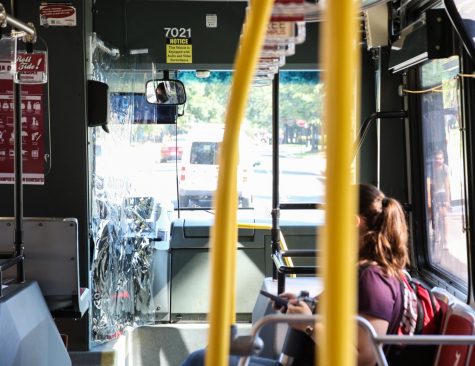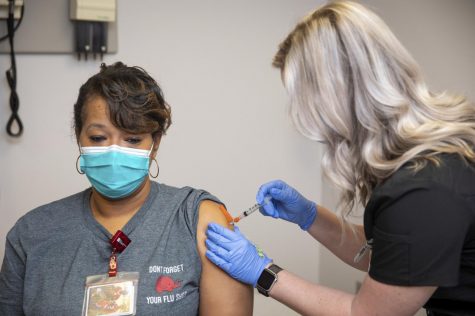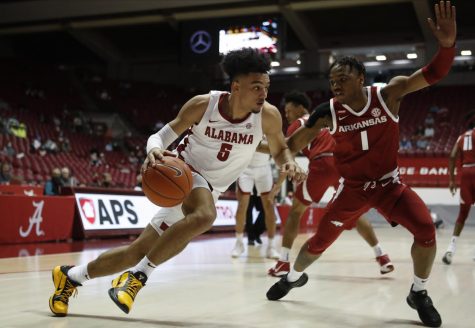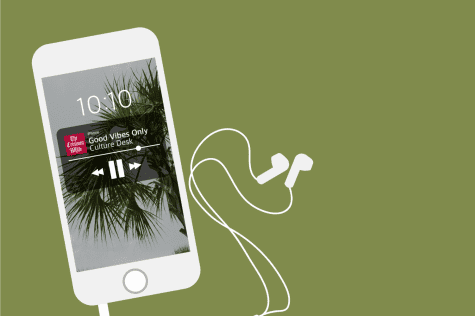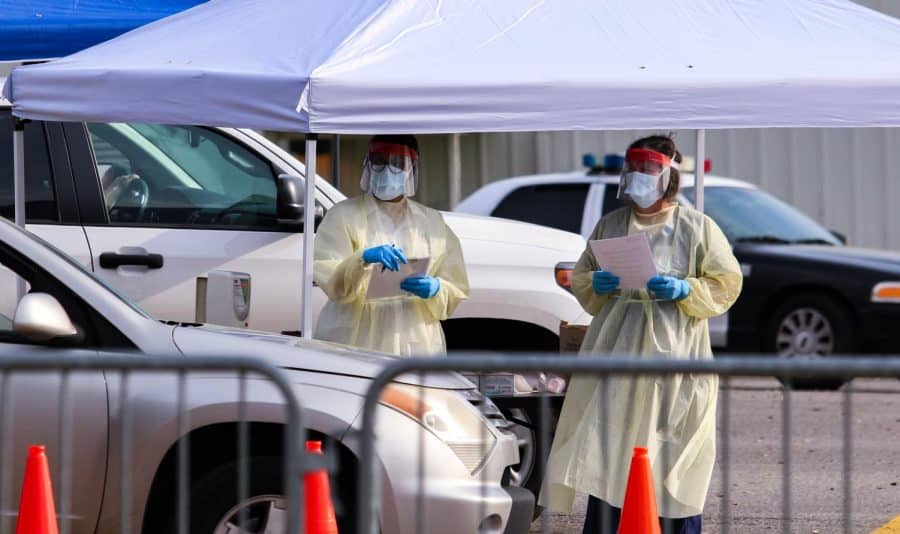How to navigate this semester’s COVID-19 testing
So, you need a COVID test. We’re here to help you figure out how to navigate testing on and off campus. The University offers exposure and symptomatic testing for students. Let’s talk about which one is the best fit for you.
Read more from our Spring Survival Guide:
In March, medical professionals at DCH were at the ready with drive-thru testing kits.
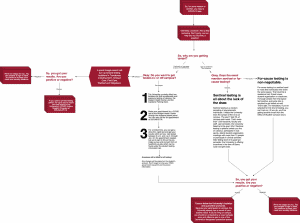 Though entry testing was required for significantly fewer students this semester, there’s always a chance that you’ll need to be tested for COVID-19 later in the semester. Whether it’s for personal reasons or because the University has summoned you specifically, there are a lot of pandemic procedures meant to keep our campus safe. Click on the flowchart and follow along to get a sense of it all, or keep reading and we’ll lay it out for you.
Though entry testing was required for significantly fewer students this semester, there’s always a chance that you’ll need to be tested for COVID-19 later in the semester. Whether it’s for personal reasons or because the University has summoned you specifically, there are a lot of pandemic procedures meant to keep our campus safe. Click on the flowchart and follow along to get a sense of it all, or keep reading and we’ll lay it out for you.
Do you plan to get tested on campus or off campus?
If on-campus testing is preferable, we have good news: The University currently offers two locations for both symptomatic and exposure testing on campus: the Student Health Center and the Capstone Parking Deck.
Make your appointment for a COVID test at the Student Health Center through the myBama patient portal. You can also call for an appointment at 205-348-2778.
For a limited time, you can get a drive-thru rapid test and get your results within an hour. Get tested between 9 a.m. and 4 p.m. through Jan. 22. No appointment needed, but you’ll want to fill out the pre-intake survey and consent form at healthinfo.ua.edu which can be found under the student testing information tab.
Looking for a test off-campus? A Google search will turn up several testing locations in Tuscaloosa including DCH, Crimson Care, First Care, Walmart and Walgreens.
Are you wondering what to do with your results?
If you tested positive, it’s time to follow the University’s isolation and quarantine protocols. If you were tested on campus, the University already has a record of your positive result. If you’re living on campus, you should be contacted by a case manager soon and offered a spot in one of the University’s designated quarantine spaces.
If you used a private testing option, it’s up to you to report your test result to the University’s COVID Hotline Support Program at 205-348-CV19.
If you tested negative, well, congratulations. You can breathe a sigh of relief, but continue to wear your mask and socially distance.
Has the University emailed you about being tested?
So, you’ve been selected for testing. At some point in the semester, you might get an email about for-cause testing or sentinel testing. What does that mean?
For-cause testing is a method used to mass test individuals who share the same space. That could be a residence hall, Greek house, student organization or classroom. If enough people from that space test positive, everyone else is required to get tested as well. That’s right. It’s mandatory. If you’re selected for this kind of testing, you can’t opt out. (If you do, you’ll be getting another email from the Office of Student Conduct soon.)
Sentinel testing is a random sampling of asymptomatic individuals. It helps the University track the spread of the virus on campus. The plan? Test 3% of campus each week. That’s more than 1,000 students, faculty and staff. Last semester, the University failed to hit its goal. Why? Sentinel testing is optional unless you live on campus, participate in club sports, attend student organization meetings with more than 10 people or participate in clinical activities. After falling short of its goal last semester, the University is offering incentives in the form of Bama Cash and gift cards.





